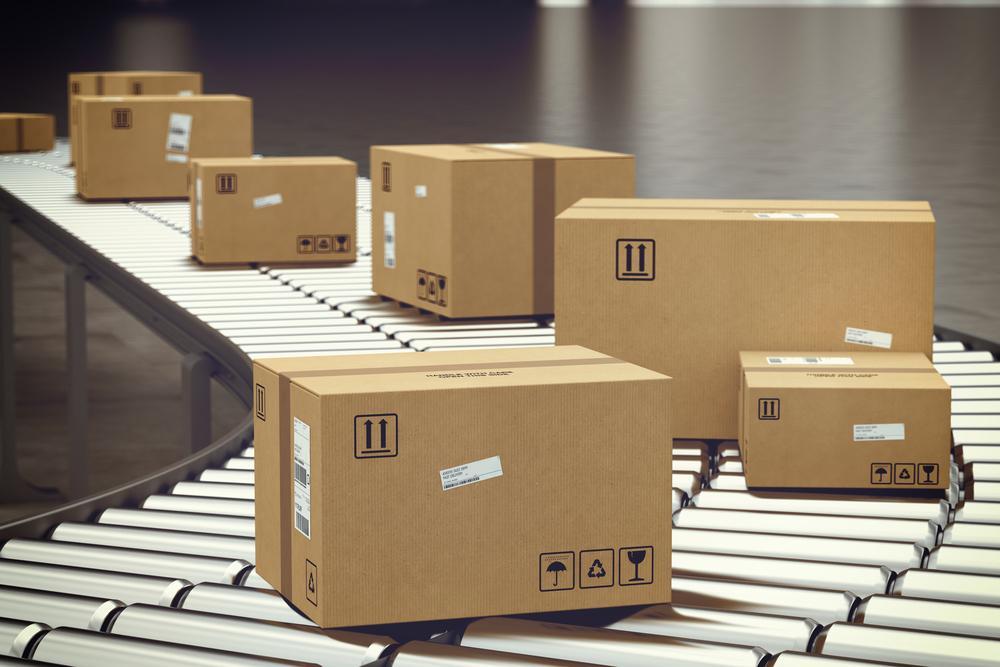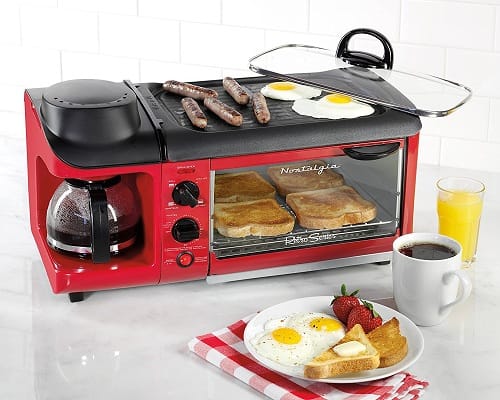Believe it or not, warehouses have never been more important. With the rise of online shopping, more and more goods are being sent to and stored in warehouses worldwide. Not only that, but the work is getting more complicated. No longer do warehouses only store things in bulk for shipping to a retailer or a similar destination. Now, more items are crisscrossing the country for distribution. It all needs to be appropriately handled, tracked, and get to its final destination safely. If there is a mistake in the warehouse, then it could mean big problems for your clients and management.

However, several pieces of equipment can help make your life simpler. They will make certain tasks easier, help you track things, and provide quick solutions for issues you might conceivably have. It’s a wonder that some warehouses operated without any of these items. Here is a list of 7 pieces of machinery every warehouse needs to operate.
Conveyors
While the primary function of a warehouse is to store things, it is also a place to move things. Manually moving boxes and individual items might not be heavy, but over time will only tire workers out and is not very efficient. Automation will help with both of those issues. In addition, conveyors are highly customizable, so you can put them wherever is convenient for your operation.
Since conveyors take away so much lifting, pushing, and pulling, they will help reduce the chances for injury. Also, if your warehouse workers do a lot of picking and packing, then the right conveyor will make the process much easier and more efficient. Manually moving your picked items from place to place, even with a cart or pallet jack, takes up too much time and effort.
Power Pallet Jack
Pallet jacks are amazing pieces of equipment that can make it so easy to move pallets around to where you need them. However, while removing much of the operator’s weight, they don’t take it all away. Some pallets are heavy enough that a warehouse staff has to push, pull, grunt, and struggle to get them moving down the aisle. What could have been a 1-minute task turns into several minutes and tires out the worker. However, a power pallet jack takes all of that effort away. While it is not as strong as a forklift and does not go as high, it can handle a huge amount of weight. In addition, it uses electricity, so the energy used to move things comes from that and not from the operator’s hands, legs, and shoulders.
Rider Forklift
What would you do if a truck comes to your warehouse and you don’t have a forklift? You would have to remove each package from each pallet by hand and stack them up on another pallet. Or, you would have to use a pallet jack to get them off. This could potentially take hours. A forklift can handle the job in a fraction of the time. It can also hold more weight if those pallets are overloaded or packed in sideways. Make sure that you have durable pallet forks that can withstand the weight and the constant scraping against the ground.
Stacker
A stacker forklift also moves a lot of weight and puts things where they need to be. However, it performs different tasks than a riding forklift. They are not typically used to unload trailers, for example. These pieces of machinery are perfect for tight spaces. They turn around easily and do not have the bulky backend of riding forklifts. A stacker is an ideal choice to retrieve or place things that are up on the highest level of your racking system without needing to get stuck trying to back away and turn around.
Order Pickers
An order picker works like a stacker, however, instead of moving pallets, it moves people. This equipment is used in warehouses that do a lot of picking and packing. An operator can safely lift themselves up to find products and items that are on the highest levels and racking. This prevents the use of ladders or the dangerous practice of riding on the forklift’s forks to get up high. These have probably never been more important. There are many more orders for individuals being handled and managed by warehouses than ever before. Instead of taking an entire pallet down to grab an item and then putting the pallet back, an operator can quickly grab the item and come back down.
Industrial Scales
The shipping and receiving industry operates on weight. After all, you can’t overload pallets, vehicles, and weight-moving equipment. You need scales that are convenient to use and will provide reliable and accurate information. Some warehouses choose a pallet jack scale to help weigh everything that comes into the building. There are several types of industrial floor scales as well if you are bringing in a lot of product or if it tends to be very heavy. For warehouses that do picking work involving food, you will especially need large scales designed for the types of food you are handling.
Stretch Wrap Machines
Properly stretch-wrapping your pallets is crucial for any warehouse. If done improperly, the product can get damaged in transit, or it could pose the risk of tipping even while it’s still in the warehouse. In addition, wrapping everything by hand is time-consuming and can make the operator dizzy. A stretch wrap machine can do the work for you while keeping both the product and the warehouse team safer.
As you can see, there is a lot of machinery that you need to have in your warehouse. Without it, you will not be efficient, and your staff will be at risk. So investing in your productivity and safety is always a good idea to get the job done right.
(image source: depositphotos.com)





